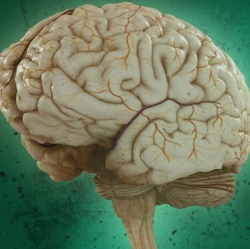
Results presented at the Alzheimer’s Society annual research conference have been hailed as “hugely promising” as they involve medicines that are already known to be safe and well-tolerated in people, potentially cutting years from the timeline for drugs to reach patients.
Two licensed drugs have been shown to halt brain degeneration in mice, raising the prospect of a rapid acceleration in the search for a medicine to beat Alzheimer’s disease. Speaking ahead of her presentation, Giovanna Mallucci, professor of clinical neuroscience at the University of Cambridge, said: “It’s really exciting. They’re licensed drugs. This means you’d do a straightforward basic clinical trial on a small group of patients because these are not new compounds, they’re known drugs.”
The scientists have chosen not to name the two drugs, which are currently used for conditions unrelated to dementia, to avoid the possibility of patients seeking to use them ahead of any clinical trial to prove their efficacy. The findings build on a landmark study two years ago, showing that brain cell death could be halted in mice by switching off a faulty signal in the brain that stops new proteins being produced.
However, the breakthrough relied on a compound that had severe physical side-effects including weight loss and diabetes, making it unsuitable for use in humans. The two drugs were identified after Mallucci’s team screened hundreds of licensed compounds in search for something safe that had the same protective effects on the brain.
Clare Walton, research manager at the Alzheimer’s Society, said: “The new results are hugely promising because the drugs are already given to people and we know they’re safe.”
Before a trial, though, the scientists said that a brain imaging study would be crucial to confirm that the same faulty signal that the drugs target in mice is responsible for neurodegeneration and the devastating memory loss it causes in Alzheimer’s.
